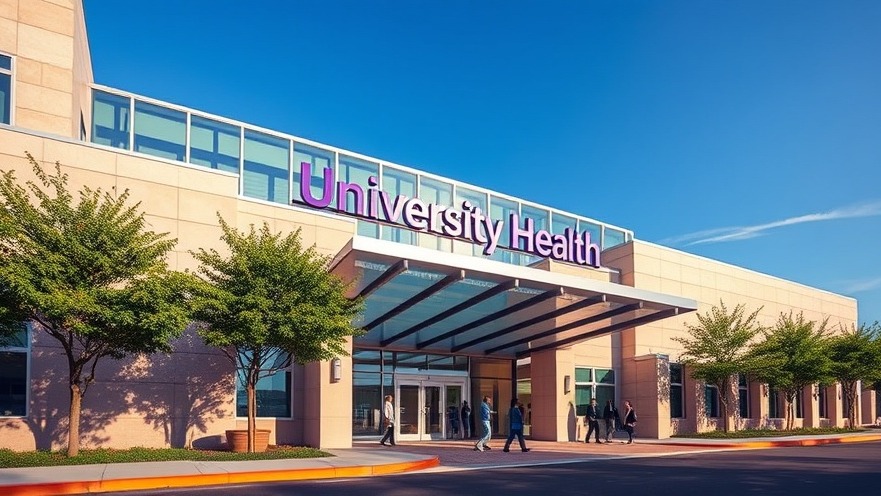
The Impact of Higher-Education Funding Cuts on Local Economies
As the pandemic's economic ramifications continue to unfold, cities, especially in regions like San Antonio, are discovering the ripple effects of funding cuts in higher education. Universities have traditionally served as economic powerhouses, supplying skilled labor, fostering innovation, and contributing to local economies through jobs and commerce. However, with reduced federal research funding and budget constraints, these institutions face challenges that could undermine their role as economic engines.
How Funding Cuts Affect Communities
In the midst of economic recovery, San Antonio, along with other cities, is particularly vulnerable. The decreased investment in higher education translates into fewer opportunities for local entrepreneurs and businesses. Universities often partner with startups and established businesses, providing critical resources such as research, talent development, and networking opportunities.
Moreover, business graduates and professionals who might have contributed to the local business scene are now faced with the uncertainty of whether their education will provide them with the skills needed in an evolving job market. This vacuum not only affects individuals but also impedes the creation of a rich tapestry of innovation necessary for a thriving economy.
A Sequential Decline: From Colleges to Local Businesses
As universities tighten their belts, the impact cascades down to small businesses and local entrepreneurs. Research from various studies indicates that communities with robust higher-education institutions are more likely to foster thriving small business ecosystems. Businesses that rely on university-driven innovation, like tech companies in San Antonio, face increased challenges. Cuts to research funding may lead to less innovation and fewer supported startups, crippling potential growth.
Supporting Local Infrastructure: A Necessary Step
To mitigate these impacts, local stakeholders, including the San Antonio Chamber of Commerce and small business networks, need to advocate for a more collaborative approach between higher education institutions and community businesses. Programs that encourage partnerships can help sustain economic growth despite funding cuts. Initiatives such as business incubators, startup accelerators, and funding workshops are crucial to adapt and thrive in the challenging climate.
Connect and Collaborate: Networking Opportunities Are Vital
The current landscape dictates the need for stronger networking among local businesses and educational institutions. Events organized for entrepreneurs in San Antonio can also play a pivotal role in fostering collaboration. These gatherings provide a platform for business owners to connect with university representatives, which can lead to developing joint initiatives that align educational outcomes with local workforce needs.
What Lies Ahead: Future Outlook for San Antonio’s Economy
The future economic recovery of cities like San Antonio depends heavily on how higher education institutions navigate these cuts. The community's ability to adapt will hinge on creative solutions that link education to economic strategies. As local governments and organizations push for better funding and resources, they must remember that a city is only as strong as its institutions.
As we face these uncertain times, the message is clear: investing in higher education is not just about schools and degrees. It impacts the lifeblood of local economies. Cities that prioritize educational support will likely see more resilience and growth.
To get involved in supporting local businesses and higher education initiatives in San Antonio, consider engaging with business networking events, or joining local chambers of commerce. Together, we can work towards a thriving economy that benefits all its members.
 Add Element
Add Element  Add Row
Add Row 



Write A Comment